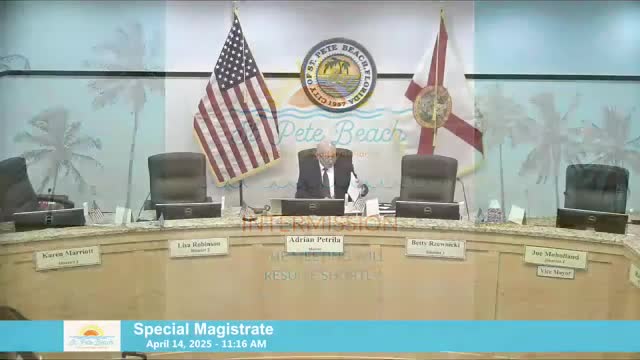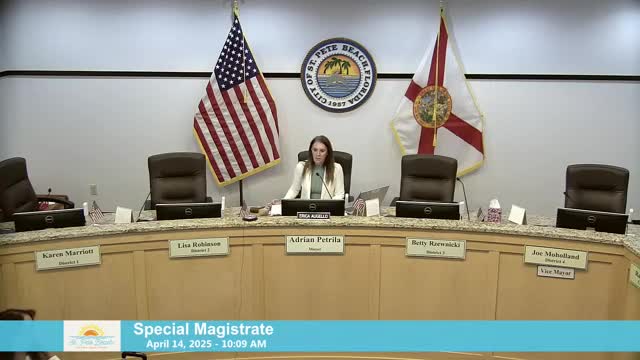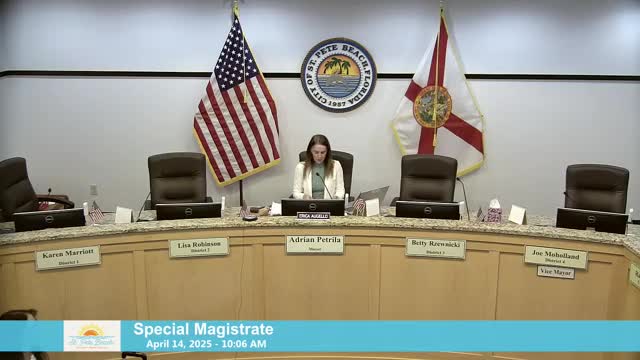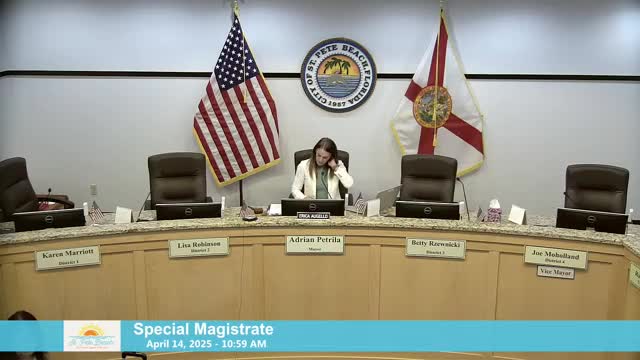Article not found
This article is no longer available. But don't worry—we've gathered other articles that discuss the same topic.

Magistrate takes Bayside Shops short‑term rental motion under advisement; declines constitutional challenge

Special magistrate finds dune disturbance at Sunset Way; remedy deferred pending legal proposals

Code enforcement records compliance on driveway and dumpster permit cases; administrative fees assessed

